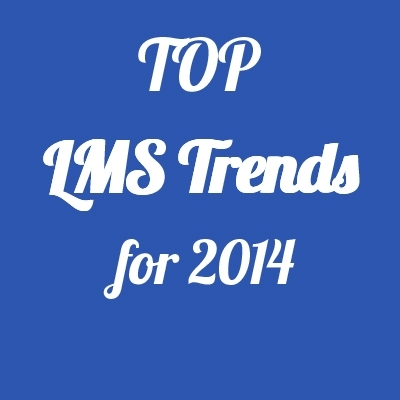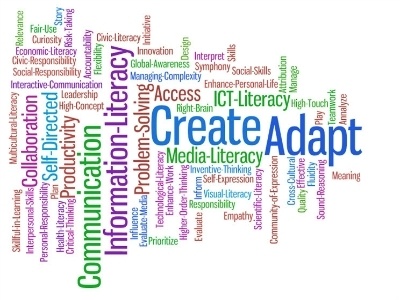Learning Management System Trends For 2018: The Top 7 For The Corporate World
2018 is just around the corner! The L&D realm in all its grandeur is set to enter the New Year, and if the predictions are anything to go by, the industry will only grow from strength to strength in the year to come. A lot of stuff is lined up to make the year exciting - a number of new developments, several existing ones that refuse to budge from their spots, and some that are a bit of spin-off to the existing ones.
We borrow from Craig Weiss' Corporate LMS Forecasts 2018 and some of our observations, as we put together the top 7 trends (in no particular order) that will make their presence felt in the LMS space and are bound to affect the way the eLearning industry functions in 2018.
1. Learning Management System (LMS) As A Performance Support Tool (PST)
Performance Support comprises tools or learning aids to help employees with on-the-job support at the "precise moment" of need. They are available to support and guide learners, by virtue of being directly embedded into their learning workflow, as they actually go about their jobs. Underpinning the success of PSTs is mobile learning in its different avatars. And why not? After all, mobile learning has the potential to meet the needs of learners when:
- Learning something for the first time. (New)
- Seeking to learn more about something. (More)
- Trying to apply or remember something or adapt performance to a unique situation. (Apply)
- Attempting to solve a problem or deal with something that has gone wrong. (Solve)
- Something changes, which requires a change in how work gets done. (Change)
However, it's not just Performance Support in an LMS that will be booming in the coming year. Other trends falling in the sub-set of PSTs that are showing sure signs of growth are:
Knowledge Reinforcement Tools (KRTs)
The keyword here is 'mobile' and 'mobility'. So, while we talk about support as when-and-where-needed, it's critical to consider the 'mobile' aspect of it too. Simply because mobile devices, with their inherent qualities of ubiquitousness, easy portability, and always-on nature, are capable of providing relevant and extremely useful training that can be accessed from anywhere, at any time. For KRTs in particular, the learner is focused on using the mobile side of the LMS, while the admin functionality is web-based.
Sales Enablement Platforms
For the always-on-the-go mobile workforce, tethering to a fixed PC or lugging around laptops for accessing training is not feasible. And if the report from RCR Wireless News indicating the growth of the global mobile workforce (to increase to 1.87 billion people or 42.5% of the global workforce in 2022, up from 38.8% in 2016), is anything to go by, the days of the only desktop-/ laptop-based training is numbered! Sales Enablement Platforms (again, heavily mobile-driven) are then of significant importance because they provide the Sales workforce with the right content and training while making optimum utilization of learner downtime - while traveling, waiting, etc. The advantage - Sales reps get access to faster learning to increase their productivity and elevate their performance.
Mobile-First
The benefits of mobile-first can never be overstated. With a mobile-first LMS, it is possible to deliver training anywhere and through any device. That means enhanced flexibility for employees. The LMS, itself, can be responsive, which implies that the LMS can function well across all devices while providing consistency in the learning experience to the learners and assuring lesser complexity on the vendor side to maintain a single code-base. However, without on/off sync capability, a mobile-first LMS means nothing! Which gets us to the next trend.
On/Off Sync Apps
The on/off sync feature in an LMS ensures that learners can download learning content onto their mobile devices and view it (multiple times too!) even when there is no internet connectivity. But what's the fuss about no internet anyway? Akamai’s latest State of the Internet report indicates that internet users in many countries—notably India—still suffer from disappointingly slow connections via both fixed and mobile services. Further, according to McKinsey & Company, "more than 60% of the world’s population remains offline". In some other cases, the nature of the industry (eg. oil and mining) involves work that needs to be done in offsite locations that don’t have an internet connection. While there are some instances, airplane - for example when data connection needs to be switched off. These app-based LMSs bring about true mobile learning because learners can access learning at their pace and time, internet or not.
2. Learning Management System With Video Support
The video was big on the 2017 eLearning trends-list last year (according to Cisco’s VNI Forecast and Methodology, 2015-2020, "video will be responsible for 80% of the internet traffic around the world by 2019") and continues to rule the spot for 2018 as well. As per the latest version of the same report, "Every second, a million minutes of video content will cross the network by 2021". Quite simply, the humungous power of videos to learn, teach, show, and tell cannot be denied!
An LMS in 2018 should be able to support videos, both streamed (ready integration with YouTube, Amazon S3, and other streaming servers) and uploaded (high quality, and in different formats). Further, video management features like video overlays, FPS auto-detection, video bookmarking, etc. are set to be a big part of the LMS scene in the coming year.
3. Learning Management System As A Learning Ecosystem
2018 will be the year in which the Learning Management System will move away from being a standalone entity and morph into a holistic Learning Ecosystem. So, apart from managing and delivering learning/training, the LMS will work alongside several other applications, tools, websites, etc. to present a one-stop-shop for everything learning. The key components of the Learning Ecosystem will be:
Online Course Marketplace
With the growth of the Khan Academy, Lynda, and the likes, it's only natural that the LMS of the future is able to easily integrate with these (and another type of) online libraries/ course marketplaces. From a learner and an organization perspective, an LMS with support for online course marketplace gives a massive advantage as it opens the door to a wide learning/training repository, sometimes beyond what is available in-house/proprietary.
Mobile Learning App
A mobile learning app is a critical aspect of the Learning Ecosystem. It not only offers learners a continuous and a seamless learning experience, it also enables them to access training while offline (not connected to the internet) and have their progress tracked and synced with the LMS when back online.
Integrations
Integrating an LMS with HRIS, HRMS, and other 3rd-party applications come with the most obvious benefit: time-, cost-, and effort-efficiency. By enabling data exchange and process automation at multiple levels, a company can focus on its key areas better while minimizing/eliminating the chances of human error too.
4. Learning Management System Compliant With xAPI
It's a well-known fact that a learning experience goes much beyond formal training. It includes informal conversations, social media interactions, water-cooler information exchanges, and even regular chats - essentially all non-formal ways in which learners 'learn'. While xAPI (also known as TinCan API) has been on the horizon for many years now, the need to incorporate it into training has never been more pronounced. Employee learning, as we know it, is being flipped on its head as employees continue to work and consume information differently, and more so in the coming years. Sample this - '81% of Millennials check Twitter at least once per day, 22% of the world’s total population uses Facebook, YouTube overall, and even YouTube on mobile alone reaches more 18-34 and 18-49 year-olds than any cable network in the U.S.'. A xAPI-compliant LMS, complete with LRS (either home-grown or 3rd-party), will be a trend-setter for 2018.
5. Third-Party/Off-The-Shelf Content In Learning Management Systems
Closely tying in with the online course marketplace trend is an LMS that supports all the major OTS or Off-the-Shelf eLearning libraries, comprising content in the form of videos, HTML5, and Flash courses. These extensive suites of eLearning and mLearning content, covering areas of business skills, tech skills, soft skills, innovation, leadership, Project Management, Banking & Finance, etc. and designed with the help of Subject Matter Experts (SMEs) from the industry, are available as a ready-to-use, budget- and time-friendly solution that can easily sit on the LMS. With the training budgets showing no sign of increase for the next year and shrinking timelines for custom content development, an LMS with support for OTS will be a key trend to watch out for.
6. Learning Management System With Deep Learning
2018 (and beyond) is all about personalization. And an LMS is no exception. A personalized learning experience based on specific learner need(s) is the name of the game when it comes to learning platforms. This deep learning will form an integral part of the LMS experience in the coming months.
The main idea of deep learning is hinged on the premise of 'learning paths'. For learning that sticks, learners require customized learning paths, which are crafted based on their interests, role, level of expertise, and personalized set of learning objectives. Determined by their personal data in the LMS, each step of the learning path is supported by resources and instant feedback which enables the learners to gauge their progress as they work toward their set goal(s).
In a primitive way, deep learning can be achieved (to a certain extent) through Competency Management tools, which through a mapping of roles to skills, identify skill-gaps and suggest/assign training content to the learners. However, it's the more evolved approach that will have more takers.
7. Assessment-Based Skill Development Through Learning Management System
While Skill Development Tools and Assessments individually have been a part of the basic feature-set of a Learning Management System, it's the marriage of these two that will set the tone of the trend in the time to come. So, it's no longer about just understanding if the learners have honed the required skill(s) 'post' training. Skill pre-assessments are gaining traction, with the preference being the assessment tool in the LMS, and not in any 3rd-party tool. Overall too, an LMS with support for Continuing Skill Development (CPD), Competency Management, and Compliance Training will hold organizations in a good stead not just in the near future but in the long term as well.
So, that's the list of trends that will play a key role in revolutionizing the LMS universe and paving the way for better corporate learning in 2018. Here’s hoping it brought some clarity to the vendors (from the perspective of creating a product roadmap) and to the buyers (for investing in a platform from a future-proofing perspective). Happy 2018 y'all!









